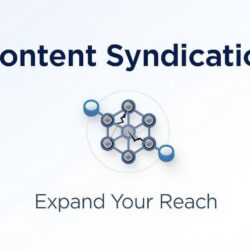The B2B market is evolving at an unprecedented pace, requiring marketers to adopt smarter, more efficient demand generation strategies. Artificial Intelligence has emerged as a critical tool for identifying prospects, personalizing engagement, and optimizing campaigns for maximum impact. AI-driven demand generation allows organizations to leverage data insights, predict buyer behavior, and scale efforts effectively. Companies using AI strategically gain a competitive advantage by accelerating B2B Growth while reducing inefficiencies and improving ROI across marketing and sales initiatives.
Understanding AI-Powered Demand Generation
AI-powered demand generation combines machine learning, predictive analytics, natural language processing, and automation to optimize every stage of the marketing and sales funnel. It enables businesses to target high-value prospects, deliver tailored content, and continuously monitor engagement. Unlike traditional methods that rely on intuition and static campaigns, AI provides actionable insights in real time, allowing marketers to design highly effective and scalable campaigns. The integration of AI into demand generation ensures that every touchpoint contributes meaningfully to conversions and revenue growth.
Predictive Analytics for Smarter Targeting
Predictive analytics is central to AI-driven demand generation. By analyzing historical data and behavioral patterns, AI identifies prospects most likely to convert and predicts the optimal time for engagement. This capability enables marketers to prioritize high-value leads, allocate resources efficiently, and design campaigns with maximum impact. Predictive insights also improve alignment between marketing and sales teams by providing a shared understanding of lead quality, ensuring both functions work cohesively to achieve measurable B2B Growth.
Intelligent Lead Scoring and Qualification
Accurate lead scoring is essential for optimizing sales efforts. AI enhances lead qualification by evaluating multiple factors such as behavioral engagement, demographics, firmographics, and intent signals. Machine learning models continuously refine lead scores based on new interactions, providing sales teams with a dynamic and accurate view of lead readiness. High-priority leads are fast-tracked to sales, while automated nurturing manages lower-priority prospects. This approach increases conversion rates, reduces sales cycle times, and maximizes the efficiency of demand generation initiatives.
Hyper-Personalization Across Buyer Journeys
Personalized marketing experiences are critical for building trust and engagement in B2B marketing. AI enables hyper-personalization by analyzing buyer behavior, preferences, and engagement history. This allows marketers to deliver targeted messaging, content, and offers across email, web, and social platforms. Hyper-personalization strengthens relationships with prospects, increases engagement rates, and accelerates conversion. By automating and scaling personalized experiences, AI ensures campaigns remain relevant and impactful even as audiences grow.
Optimizing Content Strategy with AI
Content drives engagement and nurtures prospects throughout the buyer journey. AI enhances content strategy by analyzing performance metrics, trending topics, and audience behavior to recommend the most effective content. AI can predict which types of content will resonate with specific segments and suggest optimal distribution channels. Continuous optimization ensures that content remains relevant, engaging, and aligned with buyer intent, resulting in improved lead conversion and stronger pipeline performance.
Enhancing Account-Based Marketing with AI
Account-Based Marketing requires precision targeting and multi-stakeholder engagement. AI strengthens ABM by identifying high-potential accounts, tracking interactions across decision-makers, and recommending personalized engagement strategies. Predictive analytics and intent data allow marketing teams to focus on accounts with the highest likelihood of conversion. AI-driven ABM improves campaign effectiveness, strengthens relationships with key accounts, and accelerates scalable B2B Growth.
Leveraging Intent Data for Proactive Engagement
Intent data provides insights into what prospects are actively researching, signaling potential purchase intent. AI analyzes this data to identify in-market prospects and prioritize outreach efforts. By leveraging these insights, marketing teams can engage prospects proactively with relevant messaging. Intent-driven campaigns reduce sales cycles, improve lead quality, and increase the effectiveness of demand generation initiatives. Proactive engagement ensures that marketing resources are focused on the most promising opportunities.
Automating Campaign Execution
AI-driven automation streamlines campaign management by handling repetitive tasks such as lead nurturing, follow-ups, and content delivery. Automated workflows respond dynamically to prospect behavior, ensuring timely and relevant engagement. AI can also optimize campaign parameters in real time, improving targeting and messaging effectiveness. Automation increases efficiency, reduces operational overhead, and allows marketing teams to focus on strategic initiatives while maintaining personalized engagement at scale.
Real-Time Optimization and Adaptive Marketing
AI continuously monitors campaign performance, enabling marketers to make adjustments in real time. It can identify underperforming segments, recommend content or messaging changes, and reallocate resources to high-performing channels. This adaptive approach ensures campaigns remain effective despite changing buyer behaviors or market conditions. Real-time optimization maximizes engagement, minimizes wasted spend, and ensures consistent results, driving predictable B2B Growth.
Integrating AI Across Marketing Technology Ecosystems
AI achieves maximum impact when integrated with the broader marketing technology stack. By connecting CRM systems, analytics platforms, marketing automation tools, and content management systems, AI provides a unified view of the customer journey. This integration improves collaboration between sales and marketing teams, enhances decision-making, and ensures consistent messaging across all channels. A connected ecosystem allows organizations to optimize campaigns effectively and achieve scalable demand generation results.
Ethical AI and Data Privacy
As AI becomes central to demand generation, organizations must prioritize ethical practices and data privacy. Compliance with regulations, transparency in data usage, and mitigation of algorithmic bias are critical to building trust with prospects. Ethical AI strengthens brand reputation, fosters long-term relationships, and ensures sustainable growth. Businesses that implement responsible AI strategies can maintain credibility while leveraging advanced technologies to maximize B2B Growth.
Continuous Learning for Long-Term Success
AI systems continuously learn from engagement data, campaign performance, and market trends, enabling adaptive strategies that evolve over time. Continuous learning allows marketers to refine targeting, lead scoring, content personalization, and engagement strategies. This ensures campaigns remain effective and relevant, even in dynamic markets. Organizations that leverage continuous learning can scale demand generation efficiently, achieve predictable results, and maintain a competitive advantage.
About Us
Acceligize is a global B2B demand-generation and technology marketing firm specializing in performance-driven lead generation solutions. Their services include content syndication, account-based marketing, intent and install-based targeting, and custom campaign strategies. Leveraging data science, technology, and human intelligence, Acceligize helps clients reach high-quality audiences and drive conversions across the full marketing funnel.





